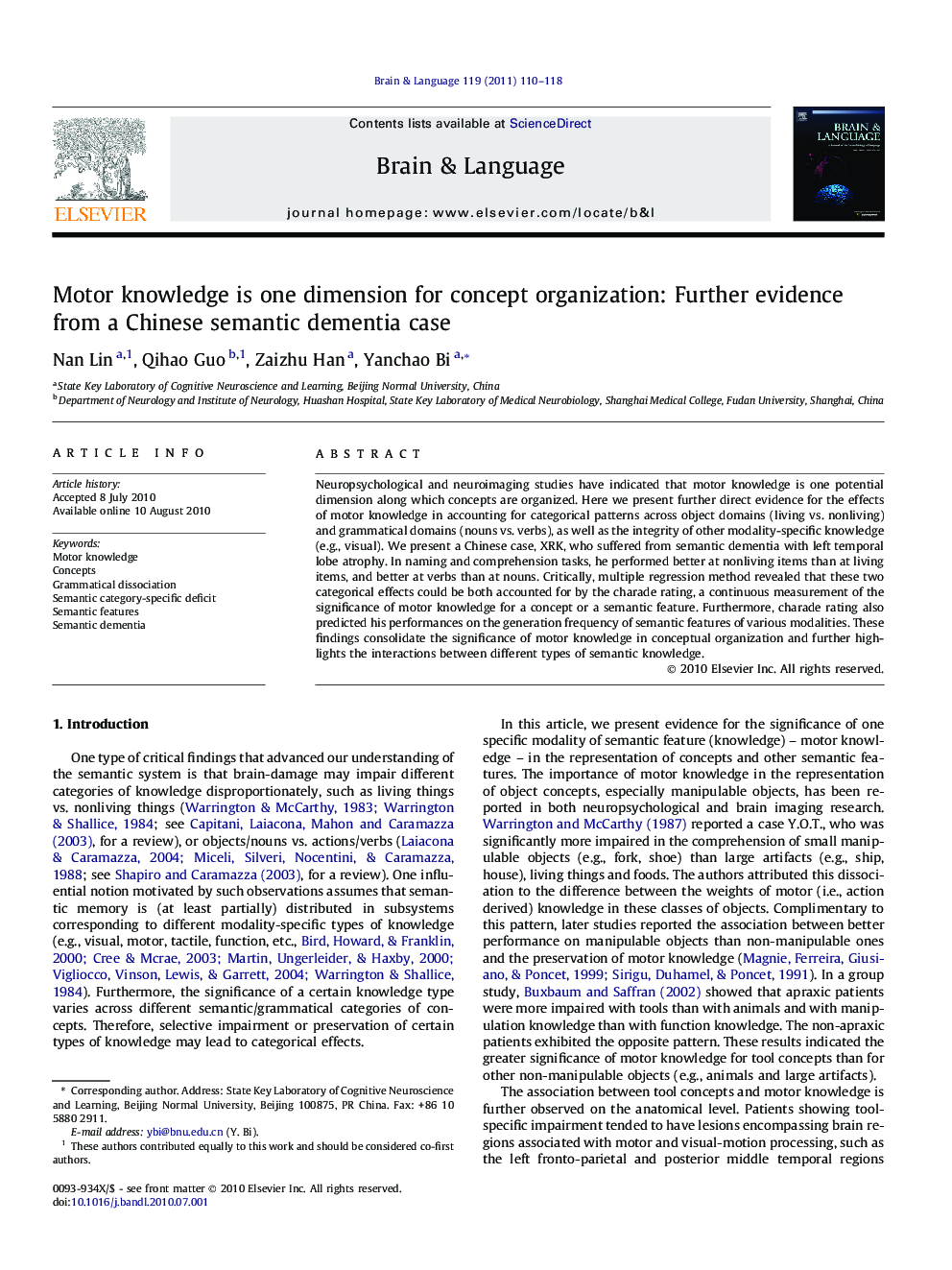| Article ID | Journal | Published Year | Pages | File Type |
|---|---|---|---|---|
| 925538 | Brain and Language | 2011 | 9 Pages |
Neuropsychological and neuroimaging studies have indicated that motor knowledge is one potential dimension along which concepts are organized. Here we present further direct evidence for the effects of motor knowledge in accounting for categorical patterns across object domains (living vs. nonliving) and grammatical domains (nouns vs. verbs), as well as the integrity of other modality-specific knowledge (e.g., visual). We present a Chinese case, XRK, who suffered from semantic dementia with left temporal lobe atrophy. In naming and comprehension tasks, he performed better at nonliving items than at living items, and better at verbs than at nouns. Critically, multiple regression method revealed that these two categorical effects could be both accounted for by the charade rating, a continuous measurement of the significance of motor knowledge for a concept or a semantic feature. Furthermore, charade rating also predicted his performances on the generation frequency of semantic features of various modalities. These findings consolidate the significance of motor knowledge in conceptual organization and further highlights the interactions between different types of semantic knowledge.
